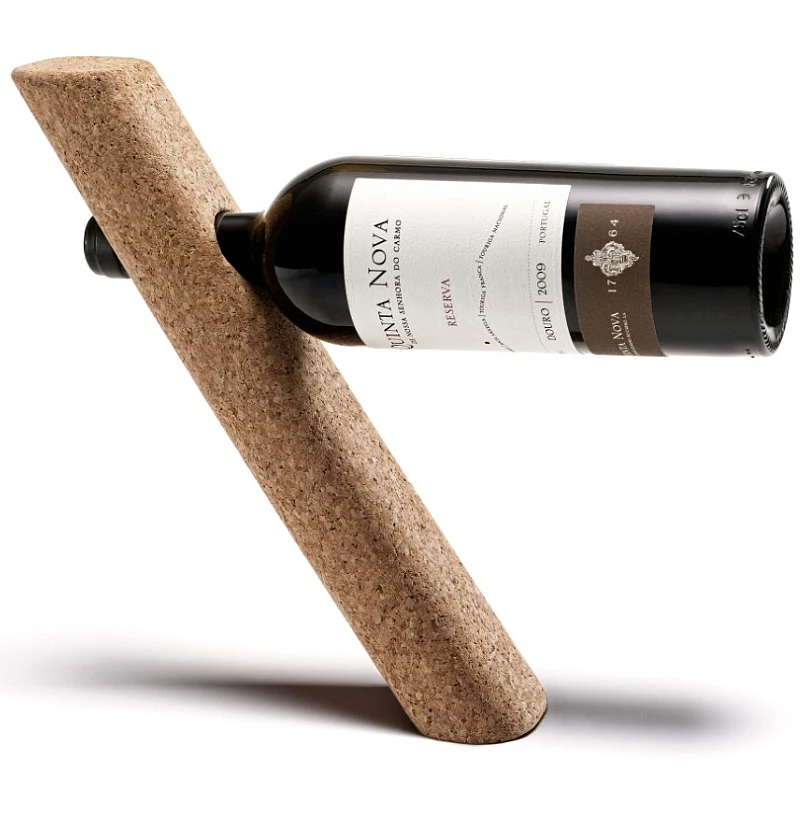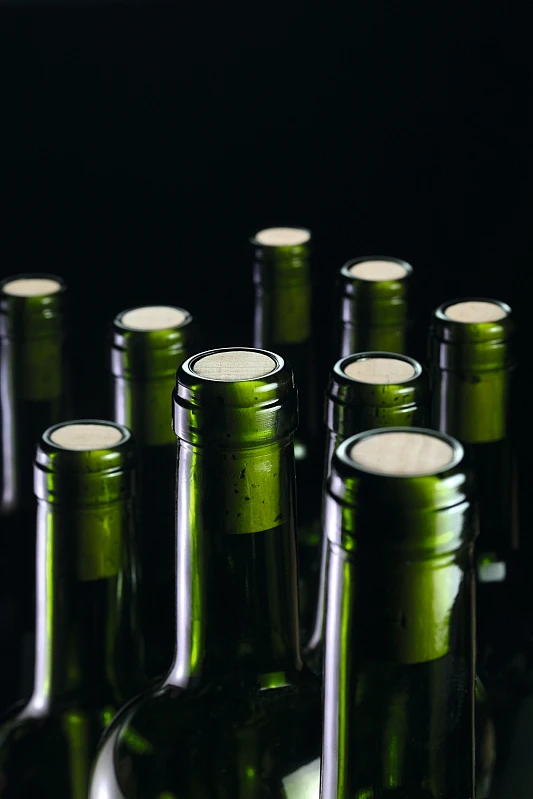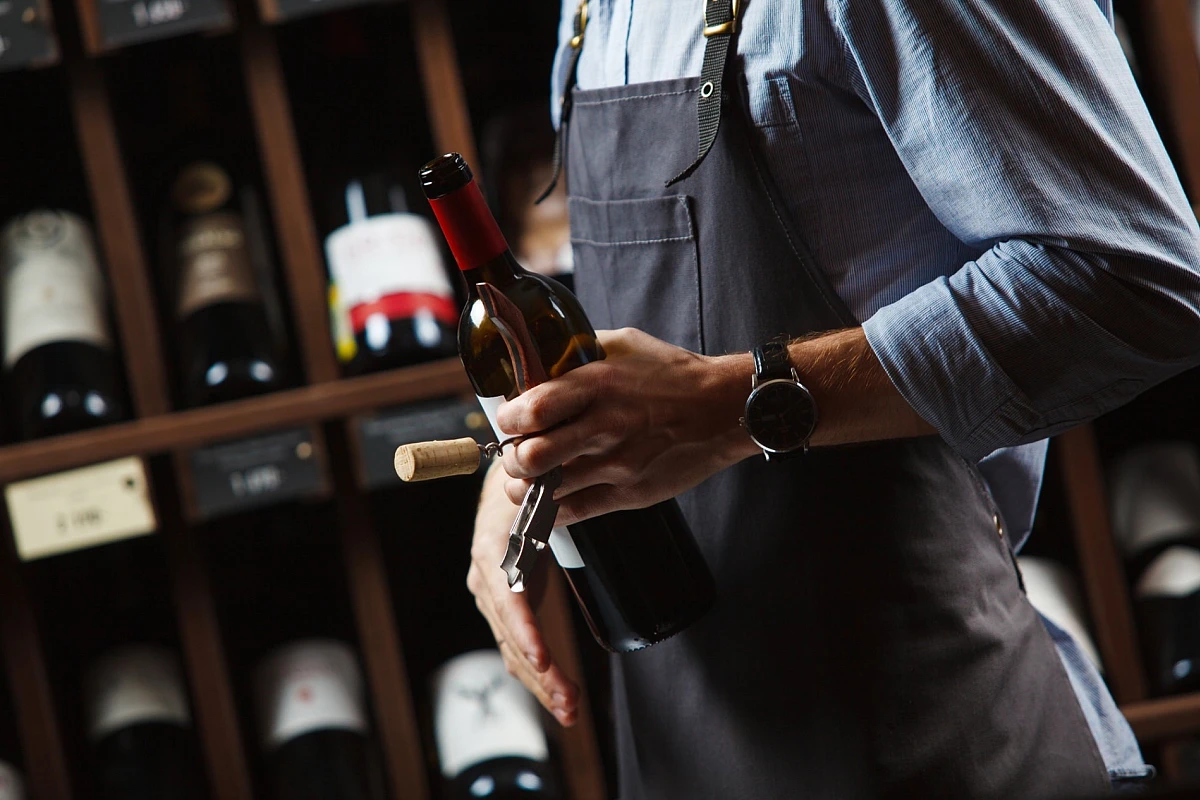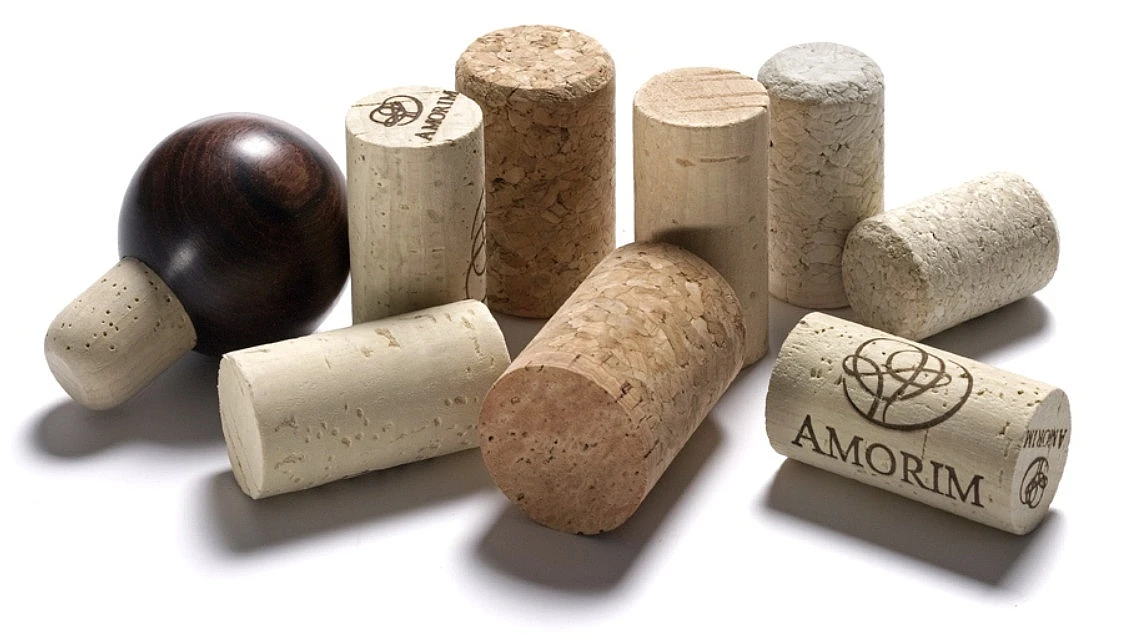- Cork and Wine
- Cork vs Artificial Closures

Cork vs Artificial Closures Top winemakers all over the world choose cork stoppers
The world's most renowned winemakers rely on cork stoppers to preserve the integrity of their wines, realising that cork offers exceptional conditions for the controlled maturation and evolution of wine in the bottle. This strategic choice reflects not only a commitment to quality, but also to tradition and sustainability, values that are increasingly essential in the wine industry of excellence.
In addition to producers, discerning and knowledgeable consumers around the world also value cork. These consumers recognise it as a symbol of authenticity and superiority. Its environmental credentials further enhance cork's appeal, as it is widely perceived as a noble and sustainable material, intrinsically linked to high quality. It's not surprising, therefore, that many are willing to put wines sealed with cork stoppers.
On the other hand, artificial closures are often viewed with reservations by this same public. Their use can be seen as a sign of compromising the quality of an inferior market positioning.
The world's most renowned winemakers rely on cork stoppers to preserve the integrity of their wines, realising that cork offers exceptional conditions for the controlled maturation and evolution of wine in the bottle. This strategic choice reflects not only a commitment to quality, but also to tradition and sustainability, values that are increasingly essential in the wine industry of excellence.
In addition to producers, discerning and knowledgeable consumers around the world also value cork. These consumers recognise it as a symbol of authenticity and superiority. Its environmental credentials further enhance cork's appeal, as it is widely perceived as a noble and sustainable material, intrinsically linked to high quality. It's not surprising, therefore, that many are willing to put wines sealed with cork stoppers.
On the other hand, artificial closures are often viewed with reservations by this same public. Their use can be seen as a sign of compromising the quality of an inferior market positioning.
“If you look at all the great wines of the world, nothing ages the same way as a cork and nothing has the life span of a cork. The way that wine develops with a cork is unique and it’s sustainable”
Consumers have a reason to mistrust artificial closures
Scientific research and the vast experience of winemakers reveal a series of challenges associated with the use of artificial closures. Problems such as premature oxidation, absorption and the transmission of unwanted aromas or flavours are some of the disadvantages most often related to synthetic materials. In addition, these closures can be a source of TCA (trichloroanisole), a naturally occurring compound that can compromise the sensorial integrity of wine, previously associated exclusively with cork stoppers.
In addition, while cork stoppers are recognised for their effectiveness in sealing liquids and gases, artificial closures fail in this critical function, not being able to guarantee an adequate gas seal. This limitation can facilitate the contamination of wines by small volatile compounds present in the environment outside the bottle, further compromising the quality of the final product.
"Once, a winemaker I know did a test to see how plastic stoppers affect a wine's flavor. He filled empty wine bottles with water, placed plastic stoppers in them and stored them in the cellar. After six months, the water from certain bottles tasted like a Barbie doll - and those were the best ones."


Quality, Reliability, and Sustainability
After a period in which cork stoppers lost market share, natural closures are gaining prominence as wines' best ally, under the impetus of important advances in terms of quality control and innovation. Everything indicates that this is not a temporary comeback for cork, because when you're looking for quality, safety and sustainability, there's simply no alternative to cork. 800 million cells make all the difference.
So it's not surprising that more than 85 per cent of wine consumers in the world's main markets prefer cork, and that 89 per cent of the wines on the Wine Spectator Top 100 Wines list are sealed with the magic cork cylinder. In the United States, 97 per cent of consumers say that a natural cork stopper is an indicator of a high or very high quality wine. In China, 97 per cent of consumers believe that cork stoppers have a beneficial influence on wine quality and in Spain, 95 per cent of consumers prefer natural cork stoppers, while 83 per cent associate cork stoppers with top quality wines. In Italy, 86 per cent of consumers believe that natural cork stoppers are an indicator of quality wine and in France, 83 per cent prefer natural cork stoppers.
The mere act of opening a bottle sealed with cork is a pleasurable moment of celebration.
In the United States, the world's largest wine market, the preference for cork is impressive. For 93 per cent of consumers of wines bought as gifts and 91 per cent of wines consumed in restaurants, cork is the choice. A study published by Nielsen reveals that 72 per cent of premium wine brands in the United States choose cork.
In fast-growing markets such as China - which is now the main export market for some of the largest wine producers - cork is also valued. Studies conducted by Nielsen revealed that cork closures are used in 95 per cent of the best-selling wines in China.
Even though for most people the simple act of opening a bottle sealed with a cork stopper is in itself a moment of pleasure and celebration, there was no scientific proof of the association between cork and special occasions, or of the relationship between cork and wine quality. Until research conducted by Oxford University provided the first empirical demonstration that cork stoppers are not only technically superior and environmentally friendly - they also provide a more positive experience.
In the experiment, 140 participants were asked to rate wines sealed with a cork and those sealed with a screwcap. The participants were unaware that they were tasting the same wine. First, they were asked to rate a wine after hearing the sound of a cork coming out of a bottle. Then they were asked to rate a wine in a bottle with a screw cap. Although they were tasting exactly the same wine, the wine they associated with cork was rated as 20 per cent more appropriate for festive occasions. The participants rated the same wine 15 per cent higher when associated with a bottle sealed with cork, compared to the screwcap.

"Wine isn’t just about technique, it’s also about emotion, and behind emotion, there are people. It’s perfectly possible that at night I dream of a magnificent cork-stopper, a top-quality cork stopper. I must say I’ve rarely dreamt of screw caps. Or, in any case, that wouldn’t be a dream."